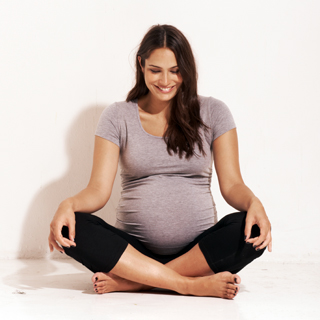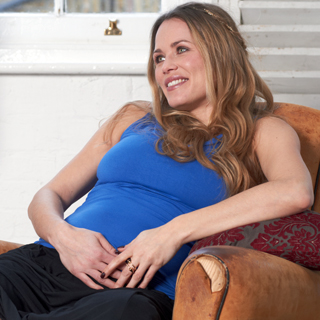How Meditation Could Help During Pregnancy
You don’t have to be an Eastern mystic, enlightened Zen master or some kind of ‘new age fanatic’ to benefit from meditation. More and more people in the western world are practising meditation for relaxation and to help them deal with the stresses of modern life. Warning: if you’re the kind of person who lives life at full speed, learning to meditate may take a little practice!

Benefits
One of the great things about meditation is that you can use it for whatever purpose you have in mind - whether that means increased spiritual connection, clearing your mind, managing pain, or simply to help you relax and cope with stresses. In any case, the benefits of regular meditation are pretty clear.
Practising regular meditation may help you cope better with mood swings (particularly helpful when you are experiencing hormone fluctuations!), get a better night’s sleep, reduce anxiety levels, improve digestion, get an immunity boost, help with pain-management, and teach you how to relax more easily. Meditation could help pregnant women cope better with labour. And some studies have also suggested that meditation may help women conceive more easily - a boon if you are hoping to increase the size of your brood!
 Types of meditation
Types of meditation
There are several varieties of meditation, including:
Mindfulness meditation - this involves bringing your awareness to the present moment, while allowing thoughts to come and go without analysis.
Deep-breath meditation - involves breathing deeply while focussing on your breath going in and out.
Mantra meditation - repeating a sound or mantra, such as the famous ‘Om’ or another chant or sound to create positive vibrations.
Dynamic meditation - which incorporates awareness and / or movement into the meditation practice.

Suggestions for practising meditation
The best times to meditate are before meals, such as in the morning before breakfast, or in the afternoon before the evening meal. This is because digestion could interfere with the process. There is no need to sit cross-legged - a comfortable chair will do. It’s best not done while lying down - you’re likely to fall asleep, which would defeat the purpose. The time spent meditating is up to you - anything from 5 to 45 minutes could be beneficial.
Experiment to find out what type of meditation works best for you. Even sitting and practising some deep breathing could be a good place to start. If you feel you would like help or guidance, join a meditation class in your area, or look into a reputable online program.

Tap into the great unconscious mind
Many meditators will tell you that even a short period of meditation can sometimes result in unexpected insights, bursts of creativity or the solution to a problem suddenly becoming apparent! It’s something to do with giving your conscious mind a break and letting the all-knowing unconscious get a word in.
Have you tried meditation? Let us know how easy or difficult it was for you, and what benefits you feel you gained from it.
